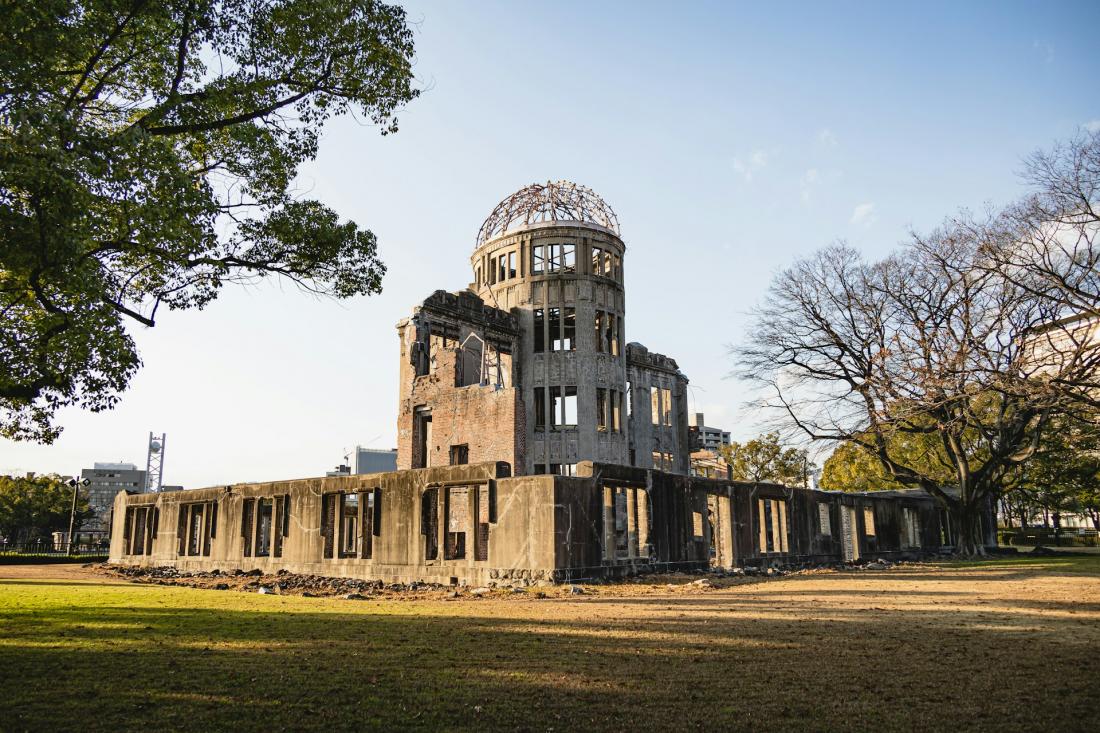Atomic Bomb Dome, Hiroshima_Photo by Alex V on Unsplash
Protecting Science in Times of Crisis:
How do we stop being reactive, and become more proactive?
Embargoed until 12:01am 20 February UTC
The International Science Council (ISC), a preeminent global body uniting the scientific community, announces the release of its timely publication, Protecting Science in Times of Crisis: How do we stop being reactive, and become more proactive? This comprehensive work by the ISC’s think tank, The Centre for Science Futures, addresses the urgent need for a new approach to safeguard science and its practitioners during global crises. With many conflicts spread over vast geographical zones; increasing extreme weather events due to climate change; and natural hazards such as earthquakes in unprepared regions, this new report takes stock of what we have learned in recent years from our collective efforts to protect scientists and scientific institutions during times of crisis.
“Critically, the report comes at a time when schools, universities, research centres and hospitals, all places which promote the advancement of education and scientific research, have been places of conflict, and destroyed or damaged during the Ukraine, Sudan, Gaza and other crises. We in the scientific community must reflect on the creating the enabling conditions for science to survive and thrive”, said Sir Peter Gluckman, President of the International Science Council.
Professor Anne Husebekk, the ISC’s Vice President for Freedom and Responsibility in Science said “This new report serves as a clarion call for the global scientific community to transition from a reactive to a proactive stance in the face of adversity, ensuring the continuity and protection of scientific endeavours. Our committee that oversees freedom and responsibility in science is seeing a growing number of adverse situations for scientists and the right to practice science at a time when our communities are seeking solutions to major global challenges”.
In the direct aftermath of a crisis, there are lessons to be learned from how to respond to immediate needs, the importance of collaboration across borders and other consequences such as addressing misinformation. Professor Sayaka Oki from the University of Tokyo Graduate School of Education contributed to the report with learnings from the Fukushima earthquake and subsequent tsunami.
“In the immediate aftermath of a disaster it is difficult to have inclusive, comprehensive and reasoned discussions, so we had a real dilemma. A democratic society should have free discussion but in reality, especially for several days after an incident, it can be really difficult to have considered and consistent messaging. So that is when a single voice is needed, but at the same time, it needs to be transparent and clear,” Professor Oki explained.
One of the key themes to emerge from the new report is that the science sector as a whole has done little reflection on its own resilience in the face of crises, from scientists becoming refugees to civilian infrastructure being destroyed and knowledge and research lost. Cont ://
“With this new publication, the Centre for Science Futures ambition is to fill an important gap in the discussions on the protection of scientists and science during crises. The study details options for more effective multilateral policy agenda, as well as action frameworks that science institutions can start collaborating on immediately”, said Dr Mathieu Denis, head of the ISC Centre for Science Futures.
Key Insights and Recommendations
The publication draws on lessons learned from recent crises and offers a strategic framework for the global scientific community. It emphasizes the importance of prevention, protection, and rebuilding phases in the humanitarian cycle, advocating for systematic, efficient, and coordinated approaches to crisis management within the science sector.
Key recommendations include:
- Enhancing Resilience: Developing systemic responses that leverage the expertise of the global scientific community to minimize the impact of crises on scientific research and infrastructure.
- Building Capacity: Strengthening the capacity of scientists and leaders in crisis and risk management, and fostering a trustful relationship between science and society.
- Coordinated Protection Efforts: Improving mechanisms for coordination and information sharing among science actors to protect researchers and scientific assets during crises.
- Advocating for Science in Rebuilding Efforts: Ensuring that science, higher education, and technological innovation are prioritized in post-crisis recovery and rebuilding efforts.
A Call to Action
The ISC is urging international scientific institutions, governments, academies, foundations, and the broader scientific community to embrace the recommendations outlined in Protecting Science in Times of Crisis. By doing so, we can contribute to a more resilient, responsive, and prepared scientific ecosystem capable of withstanding the challenges of the 21st century.
Media Assets:
- Report embargoed until 12:01 20 February 2024 UTC: https://council.science/wp-content/uploads/2024/02/Protecting-Science-in-Times-of-Crisis_ISC_2024.pdf
- Executive Summary: embargoed until 12:01 20 February 2024 UTC https://council.science/wp-content/uploads/2024/01/Protecting-Science-EXEC-SUMMARY.pdf
- Infographic: https://futures.council.science/publications/science-in-times-of-crisis
- Short film with closed captions: embargoed until 12:01 20 February 2024 UTC https://www.youtube.com/watch?v=6qIHSN2ISws
About the International Science Council (ISC)
The ISC is a non-governmental organization with a unique global membership that brings together scientific unions, associations, and research councils to catalyse change on issues of major importance to science and society. The ISC is an international non-governmental organization with a unique global membership that brings together 250 international scientific unions and associations, national and regional scientific organizations including academies and research councils, international federations and societies, and young academies and associations.
About the Centre for Science Futures
Established in 2023, the ISC's Centre for Science Futures aims to improve understanding of emerging trends in science and research systems, offering tools for impact and action.
Contact:
Global:
Alison Meston
Director, Communications
[email protected]
+33 673 93 86 65
Asia and the Pacific
Aleta Johnston
Communications Manager
[email protected]
+61 431 514 677
Ends



